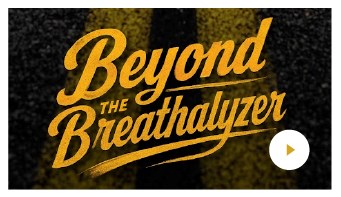Recent Blog Posts
Proposed New Bill in Congress Threatens Deportation for DUI Offenses
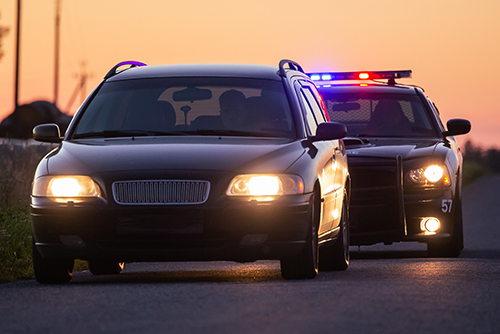 By Michelle L. Behan
By Michelle L. Behan
A new bill, which was received in Congress this year, proposes to amend the Inadmissibility and Deportability Statutes in the Immigration and Nationality Act to included Driving Under the Influence (DUI) as a deportable offense as well as an offense that renders someone inadmissible to the United States.
Right now, there are several criminal offenses which can result in removal or inadmissibility. The current statutory language largely focused on what are known as crimes involving moral turpitude. These have been loosely defined as depraved or immoral acts, which violate the basic duties owed to fellow persons. In the past, examples of crimes involving moral turpitude have included murder or manslaughter, embezzlement, robbery and theft, drug-related crimes, assault, kidnapping, domestic violence, fraud, and rape.
Other specifically named crimes, such as prostitution, controlled substance trafficking, or repeat criminal offenders are also considered as offenses which render a person inadmissible.
True or False: DUI Edition
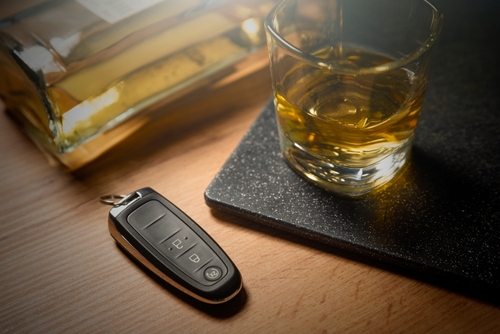 By Amanda Stafford, Esq.
By Amanda Stafford, Esq.
- You must submit to a preliminary breath test. FALSE
You do not need to submit to a preliminary breath test. The State cannot use that number in court against you as it does not meet the statutory requirements to be admitted in court. However, the officers can use it to say it was positive for the presence of alcohol. And, if you blow a .15 or higher, the police can impound your vehicle for 20 days.
It is important to note that the preliminary breath test is small and handheld. There is a larger breath test machine called an Intoxilyzer used by some departments that can be used in court and that is different than a preliminary breath test. That test is governed by different rules.
- A police officer can draw your blood. TRUE
In Arizona, some officers attend training to become qualified phlebotomists meaning they are legally allowed to draw your blood. Some agencies, like the Pima County Sherriff’s Department will draw your blood right there on the side of the road other agencies may transport you to a station like, Arizona Department of Public Safety does. The officers must attend trainings to keep up their qualifications. Here at the Behan Law Group, we have successfully fought for DUI charges to be dismissed when the officer had missed several of these required trainings.
What about my Miranda Rights?
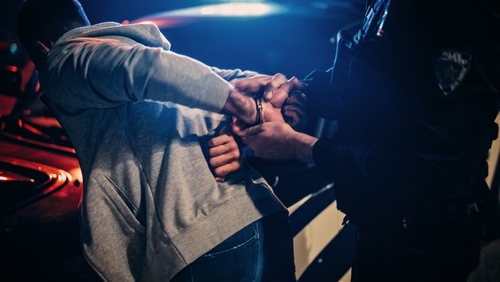 By Amanda Stafford, Esq.
By Amanda Stafford, Esq.
One of the most common questions the attorneys at The Behan Law Group get asked is "Didn’t the officer have to read me my rights?" And the answer is technically no. The police do not have to read you your rights just because they are arresting you.
The police must read you your rights if you are in custody and being interrogated. But what exactly does that mean? Courts have spent a long time trying to figure that out.
Generally, if you are not free to leave, then you are in custody for the purposes of Miranda. If an officer is asking you questions generated to gather an incriminating response, then you are interrogated. Courts have also said even if an officer is not directly asking you questions, there are still instances where your Miranda rights must be read to you.
Remember, the police don’t have to read you Miranda in order for you to request an attorney. You should do that any time you faced with questions from the police.
Is My DUI a Felony?
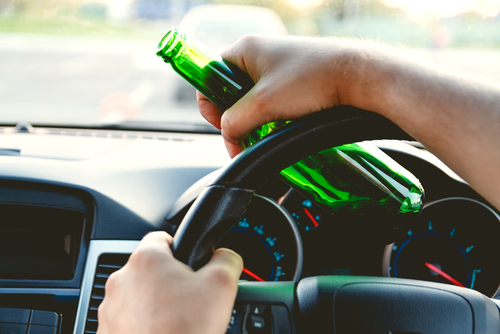 By Amanda Stafford, Esq.
By Amanda Stafford, Esq.
One common misconception is that a high alcohol concentration can make your DUI a felony; however, that is not true. Whether your alcohol concentration is a .08 or a .45, your case may still be a misdemeanor.
If you are arrested for DUI and answer yes to any of the following, your DUI could be a felony:
- Is your driver license or privilege to drive suspended, canceled, revoked, or refused, or is your driving privilege restricted for a prior DUI offense?
- Is this your third DUI in 7 years?
- Did you have someone under the age of 15 years old in your vehicle at the time of the DUI?
-
At the time of your DUI, were you required to have an ignition interlock on your vehicle?
-
Were you driving the wrong way on a highway?
An aggravated DUI for having a passenger under the age of 15 in the vehicle is a class 6 felony. An aggravated DUI for any of the other reasons is a class 4 felony.
Throwback Thursday, DUI Style
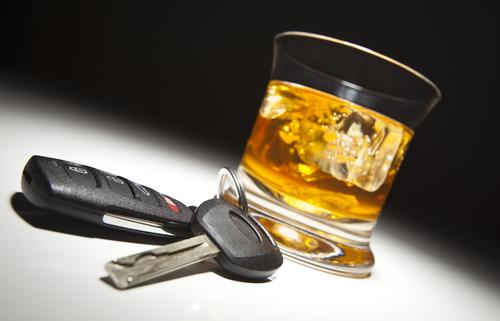 State of Arizona ex rel. Hamilton v. City Court of Mesa, and Real Party in Interest Lopresti, 799 P.2d 855, 165 Ariz. 514 (1990) – How the State Gets it Wrong and What Happens When the Courts Believe Them
State of Arizona ex rel. Hamilton v. City Court of Mesa, and Real Party in Interest Lopresti, 799 P.2d 855, 165 Ariz. 514 (1990) – How the State Gets it Wrong and What Happens When the Courts Believe Them
Michelle L. Behan
In 1990, the Supreme Court of Arizona took up a case to determine if it was lawful for the State of Arizona to use field sobriety test results as proof a citizen had an alcohol concentration over the legal limit. A few years earlier, the Supreme Court had decided a case[1] called Blake, where they held it was not permissible for the State to use Horizontal Gaze Nystagmus test results as direct evidence of a driver’s alcohol concentration. In the Lopresti decision, the Court reaffirmed its prior holding, and then provided direct guidance limiting the testimony of a police officer regarding HGN test results:
In the absence of a chemical analysis, the use of HGN test results, as with observations from other field sobriety tests, is to be limited to showing a symptom or clue of impairment. … The officer may not testify regarding accuracy in estimating BAC from the test, nor may the officer estimate whether the BAC was above or below [the legal limit]. … HGN test results may be admitted only for the purpose of permitting the officer to testify that, based on his training experience, the results indicated possible neurological dysfunction, one cause of which could be alcohol ingestion.
Easing License Restrictions for Those Arrested or Convicted of DUI
 By Amanda Stafford, Esq.
By Amanda Stafford, Esq.
Starting in January, many new and beneficial changes are coming the license restrictions faced by people arrested or convicted of DUI. Some of those changes include:
1. Time to Request a Hearing
Currently, if you are arrested for DUI the officer will give you an admin per se/ implied consent form (usually your copy will be pink or yellow). You have 15 days to request a hearing on the license suspension or your license will be automatically suspended. Starting in January, that will change to 30 days. This gives people twice as long to request a hearing. These hearings can be a huge benefit and we at the Behan Law Group have been successful in defeating licenses suspensions at these hearings.
2. Suspension when Arrested for DUI and Consenting to Chemical Testing
Right now, if you are arrested for DUI and agree to the chemical test (this can be blood, breath, or urine) you face a 90-day suspension. For those who qualify those 90 days are split into 30 days of absolutely no driving followed by 60 days of restricted driving where you can drive to and from work, school, home, etc.
Jail Time Reduction Without an Ignition Interlock
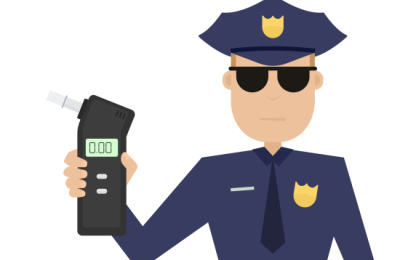 By Amanda Stafford, Esq.
By Amanda Stafford, Esq.
Arizona requires someone convicted of a "Super Extreme" DUI (driving or in actual physical control of a vehicle while having an alcohol concentration over .20) to serve 45 days in jail. The law also permits the court to suspend[1] all but 14 days if someone installs an ignition interlock device in any vehicle that they drive.
Many plea agreements, both in felony cases as well as misdemeanors, require that someone put an ignition interlock on a vehicle to reduce the time the person spends in jail. Previously, some courts read this to mean if you did not have a car you had to do more jail time than someone who had a car and who could install an ignition interlock device. This also meant someone would be required to get a car and have an ignition interlock installed if they hoped to have reduced jail time.
Recently, the Arizona Court of Appeals ruled that this interpretation was incorrect. In State v. Kara Anne Stowe, the Court found that jail time could be reduced even without the installation of the ignition interlock device for a defendant who did not own a car and did not drive during the one year following their sentence. In other words, there is no longer a requirement that someone go out and buy a car and equip it with an interlock device to receive the jail time reduction. Now, the interlock only needs to be installed if that person is driving during the one-year period.
Record Sealing: Keeping the Past Private
 By Amanda Stafford, Esq.
By Amanda Stafford, Esq.
Arizona has recently passed several laws recently aimed at breaking down the barriers created by criminal convictions. To learn more, check out our other posts on Certificate of Second Chance and Limiting the Use of Felony DUIs as Historical Priors. Arizona has passed a new law to help citizens who have been convicted of criminal offenses get their lives back on track. A.R.S. § 13-911, which takes effect on January 1, 2023, will allow many criminal records to be sealed.
What Does it Mean to Seal a Record?
Currently, if someone is arrested, charged, or convicted, it is a matter of public record. This means anyone can look it up online or in person. Record sealing removes the case from public access, limiting who is able to see the arrest, charge, or conviction.
There are still circumstances when someone could see the prior arrest, charge, or conviction. For example, a prosecutor, law enforcement officer, or someone doing certain background checks could still see the records.
Change is Coming!
 By Amanda Stafford, Esq.
By Amanda Stafford, Esq.
Arizona has just signed into law House Bill 2673. The changes will take effect on January 1, 2023, and will affect Arizona’s DUI laws in 4 ways.
1. Aggravated DUI as a Lifetime Prior Felony
Before this new change, if someone had a conviction for aggravated DUI it was considered a lifetime prior felony. The State could use someone’s prior aggravated DUI conviction against them to request a harsher penalty if they were ever found guilty of another felony. Lifetime prior felonies could be used against someone forever.
For example, if someone at 21 was convicted of an aggravated DUI and 50 years later had a new felony charge the State could use the prior aggravated DUI against them for a harsher sentence. With the new law change, the aggravated DUI is treated more like other felonies and can only be used against them “forever” if the person is being sentenced for another aggravated DUI. Aggravated DUIs can still be used for harsher sentencing in some circumstances and depending on the age of the conviction.
DUI Checkpoint Ahead: What You Should Know
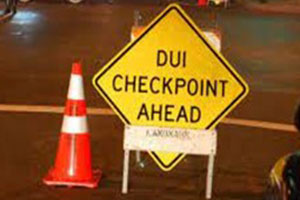 By Amanda Stafford, Esq.
By Amanda Stafford, Esq.
Have you ever found yourself at a DUI checkpoint and wondered why the police are allowed to stop you when you did nothing wrong? You are not alone. In fact, many states do not allow DUI checkpoints because they violate their state constitutions.
However, the United States Supreme Court has said DUI checkpoints are constitutional. In Michigan Department of State Police v. Sitz, the Court considered the government’s interest in preventing alcohol related accidents, the checkpoints’ ability to achieve that goal, and the infringement on personal liberties and determined that the government’s interest was so strong that it outweighed the imposition on individuals. Despite that statement, the Court went on to carefully curtail the scope of what the police can do at a checkpoint.
Amongst those qualifications are:
- The checkpoints must be well-lit, have proper signage, and any police presence should be obvious;




